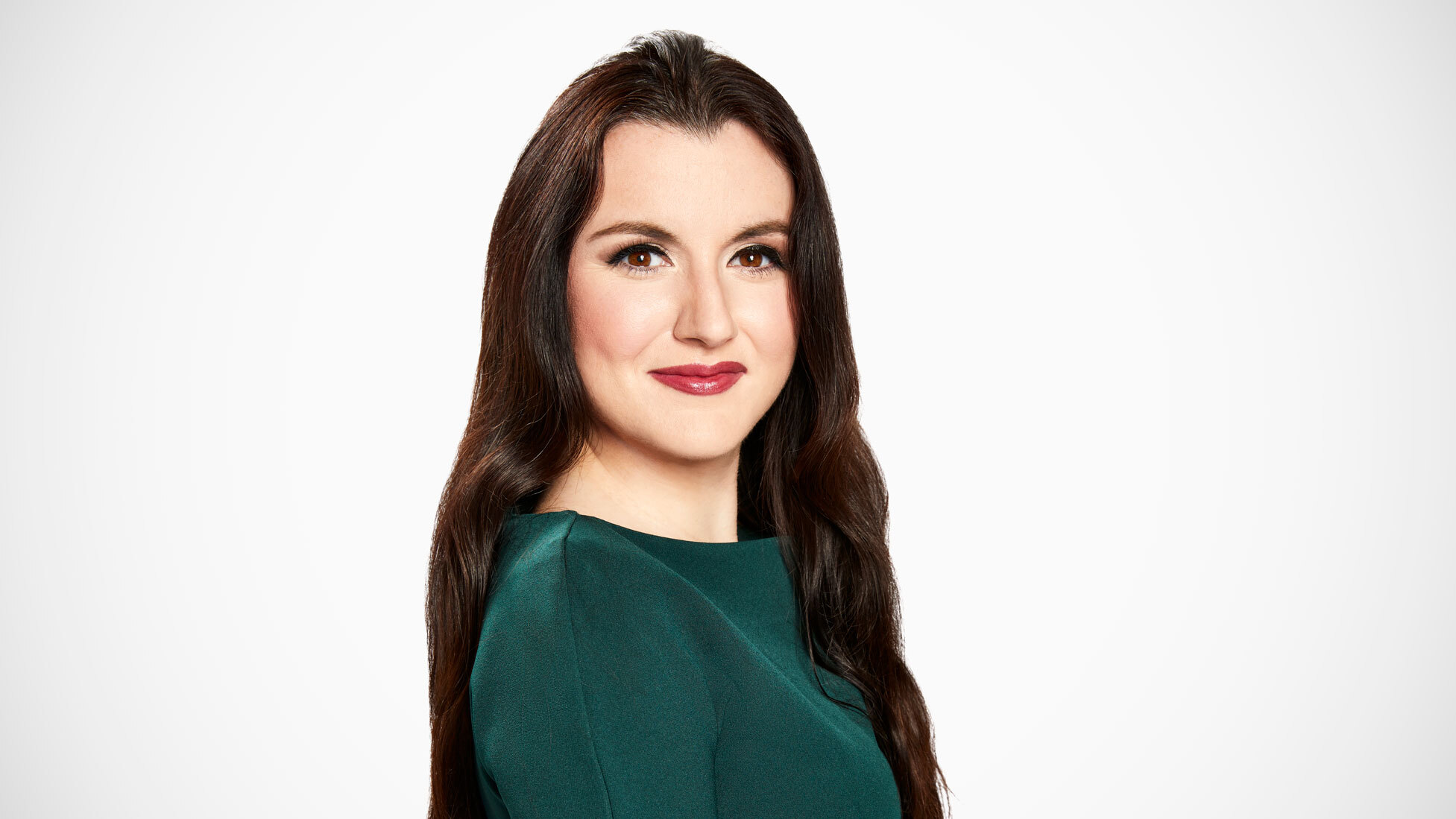- July 10, 2021
- by:
- in: Blog
Welcome back to This Week in Apps, the weekly TechCrunch series that recaps the latest in mobile OS news, mobile applications and the overall app economy. The app industry continues to grow, with a record 218 billion downloads and $143 billion in global consumer spend in 2020. Consumers last year also spent 3.5 trillion minutes using apps on Android devices
Welcome back to This Week in Apps, the weekly TechCrunch series that recaps the latest in mobile OS news, mobile applications and the overall app economy.
The app industry continues to grow, with a record 218 billion downloads and $143 billion in global consumer spend in 2020. Consumers last year also spent 3.5 trillion minutes using apps on Android devices alone. And in the U.S., app usage surged ahead of the time spent watching live TV. Currently, the average American watches 3.7 hours of live TV per day, but now spends four hours per day on their mobile devices.
Apps aren’t just a way to pass idle hours — they’re also a big business. In 2019, mobile-first companies had a combined $544 billion valuation, 6.5x higher than those without a mobile focus. In 2020, investors poured $73 billion in capital into mobile companies — a figure that’s up 27% year-over-year.
This Week in Apps offers a way to keep up with this fast-moving industry in one place with the latest from the world of apps, including news, updates, startup fundings, mergers and acquisitions, and suggestions about new apps and games to try, too.
This Week in Apps will soon be a newsletter! Sign up here: techcrunch.com/newsletters
Top Stories
Android ad prices jump in wake of privacy updates on iOS
The Wall St. Journal reported this week how Apple’s privacy changes are changing the world of mobile advertising — in this case, ad pricing across platforms. The news outlet has been covering the broader impact of Apple’s decision to let users block apps from tracking them, noting how ad sales, including Facebook’s ad business, would be affected. (And how Apple’s own ad business would gain.)
This week, The WSJ says most users are declining tracking on iOS (less than 33% opt in), and as a result, mobile ad prices on iOS have fallen. The outlet cites data from ad measurement firm Tenjin which notes that spending on iOS mobile ads has dropped around one-third between June 1 and July 1. Around the same time, Android spending rose 10% — an indication that, for the time being, some portion of the ad market has just shifted platforms. Facebook ad spend also shifted to Android, with year-over-year growth of 46% for Android users in May to 64% in June.
The news follows a story this week from The FT, which noted that Chinese tech giants’ plan to route around the IDFA changes with CAID (the Chinese Advertising ID), had failed. Apple blocked updates to apps using CAID, which led to it losing support and the project’s failure.
For most app users, the ability to block tracking is a welcome change, as far too much user data had been shared behind-the-scenes without users’ informed consent. But the full impacts of how the update will impact app monetization long-term — and ultimately which companies then choose to build on iOS — still remain to be seen.
37 AGs target Google Play in an antitrust lawsuit
A group of 37 attorneys general filed a second major antitrust lawsuit against Google, accusing the company of using its market power to stifle competition. The suit takes aim at Google’s Play Store, which requires users to pay for apps and in-app purchases using Google’s own payments system — which gives Google a percentage of the revenue. In addition, the suit alleges that Google makes misleading security claims about the need for a walled garden app store like Google Play, in order to maintain its dominant position.
Google responded by calling the lawsuit “meritless” and noting that it ignores the openness of the Android platform, which permits other app stores and sideloading.
First Look: Pok Pok’s award-winning kids’ app Pok Pok Playroom shows off its sound design

Image Credits: Pok Pok
Recently launched Pok Pok Playroom from Pok Pok, a spinout from app maker Snowman (Alto’s Adventure, Alto’s Odyssey, Skate City), just took home an Apple Design Award in the “Delight and Fun” category for its app launched just months ago. Unlike other kids’ apps, Pok Pok promises an app that’s more of a digital “toy” that encourages real and imaginative play, not a mobile kids game. Now the company is sharing some of the techniques that helped it build this award-winning experience.
The company says it wanted to make sure there were no annoying sounds or repetitive music in the app that would bother parents or get stuck in kids’ heads. So it worked with its sound designer, Matt Miller, to ensure all the sounds in Pok Pok Playroom were sensory accessible and not overstimulating.
Miller often uses what he calls “found sounds” — that is, sounds he created by finding things to record — like a soup can, a vintage toy sourced from a local thrift shop, birds chirping, a spoon knocking on a pinecone and more. These give Pok Pok Playroom a more natural feel than other toys, which can sometimes feature loud or electronic-sounding noises that are overstimulating for kids and disruptive to those around them.
Weekly News
Platforms
A new Comscore study offers a look at how much people use their preinstalled apps from Apple and Google. Not surprisingly, these built-in utilities and services — like email, notes, messaging, maps, photos, clocks and more — dominate people’s app usage. 75% of the top 20 most-used apps on iPhone were made by Apple, and 60% of the top Android apps were made by Google, but here’s the funny thing: The study was paid for by Facebook, a company that’s looking for any angle to make it seem like it’s not a monopoly. So of course it had to find the only other bigger apps it could — the ones that ship with your smartphone.
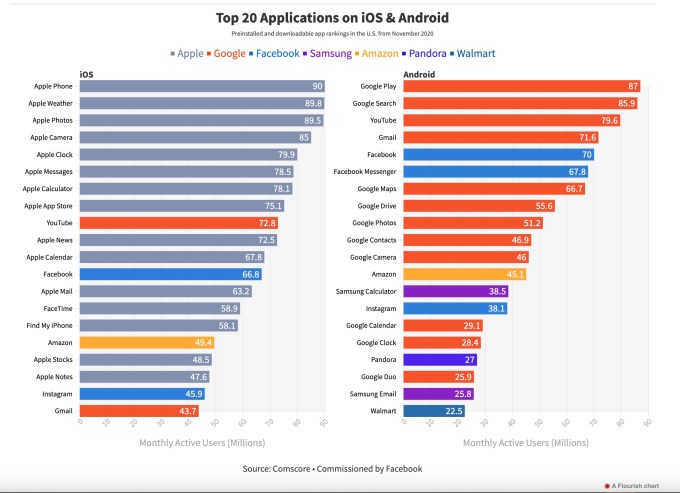
Image Credits: comscore
OnePlus confirmed it’s throttling a number of popular apps on the OnePlus 9 and OnePlus 9 Pro in order to improve battery life. Apps such as Chrome, Twitter, Zoom, WhatsApp, Facebook, Instagram, Snapchat, YouTube, Discord, Microsoft’s Office apps, Firefox and Samsung Internet, were affected. The issue was discovered due to inconsistent benchmarks in testing.
Fintech
PayPal was the most downloaded P2P payments app globally during the first half of 2021, according to Apptopia. Rounding out the top 10 were Google Play, Alipay, PhonePe, Cash App, Paytm, Venmo, Zelle, Western Union and Remitly.
Personal finance app Charlie launched a redesign and a new feature called Direct Pay, which allows users to add their credit cards to the app to make extra payments toward their debt at their own pace. Or they can let the app recommend when it’s best to make payments toward their credit card debt. The company notes its users are now saving $66 monthly, which has added up to $30K+ of interest saved over the lifetime of their loans.
Social
 TikTok is piloting a new program that will allow U.S. users to apply for jobs using a TikTok video as a resume. Video applicants are asked to showcase their skillsets and experiences on video, then add #TikTokResumes to their caption. Pilot testers include a number of employers — like Chipotle, Target, WWE, Alo Yoga, Shopify, Contra, Movers + Shakers and others. The question is, will TikTokers feature these videos on the same account where they’ve posted personal content, dances and trends, or will this give way to a rise in Rinsta and Finsta-like TikTok accounts, where personal and more public content remains separated?
TikTok is piloting a new program that will allow U.S. users to apply for jobs using a TikTok video as a resume. Video applicants are asked to showcase their skillsets and experiences on video, then add #TikTokResumes to their caption. Pilot testers include a number of employers — like Chipotle, Target, WWE, Alo Yoga, Shopify, Contra, Movers + Shakers and others. The question is, will TikTokers feature these videos on the same account where they’ve posted personal content, dances and trends, or will this give way to a rise in Rinsta and Finsta-like TikTok accounts, where personal and more public content remains separated?
TikTok is also testing its own version of Cameo. The company was spotted testing a new feature that allows fans to pay for a shout-out video from their favorite creators directly in the app. According to screenshots of the feature, fans can request birthday wishes, pep talks and other messages, then pay using TikTok’s in-app currency.
TikTok launches Shoutouts – fans can request birthday wishes, pep talks and other messages from their favourite creators.
Fans can directly pay in-app, through TikTok’s in-apps currency (also used for live-stream gifting). pic.twitter.com/i5zQJKNfP5
— Fabian (Bern) Ouwehand 法比安 (@iamfabianbern) July 4, 2021
Twitter shared a few more ideas it’s thinking about in terms of new features around conversation health and privacy. This includes a one-stop “privacy check-in” feature that would introduce Twitter’s newer conversation controls options to users, and others that would allow people to be more private on the service, or to more easily navigate between public and private tweets or their various accounts.
TikTok on Tuesday experienced a widespread technical outage that lasted for over five hours before services were restored. U.S. users found that many videos were not loading during this time.
TikTok parent company ByteDance launched a new business arm called BytePlus, which will license the company’s various technologies to other businesses. This includes its AR effects, computer vision and machine translation tools, analytics and testing tools, and its recommendation engine that supports over 1.5 billion users. The company’s tools are being used by GOAT, Wego, Chilibeli, GamesApp, Webuy, Lark, and others, in addition to TikTok.
Trump has now sued Facebook, Twitter and Google for being “censored.” The companies enforced their terms of service in taking down Trump’s account across top social media platforms in the wake of the Jan. 6 attack on the Capitol. Trump’s lawsuit claims his First Amendment rights are being violated. The First Amendment applies to government censorship, not actions taken by businesses, however. Trump likely knows this but wanted to stir up some headlines.
Photos
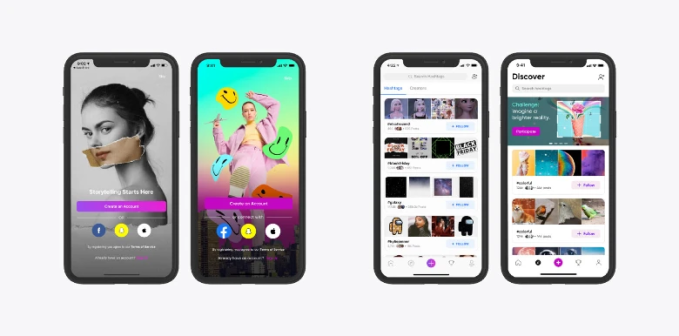
Image Credits: Picsart
Popular photo-editing app PicsArt launched a brand refresh that includes a new name (Picsart), new logo, and a fresh new look across web and mobile, and more creator-friendly design flows. The app today has over 150 million monthly active users worldwide.
Everyone has thoughts on Instagram Head Adam Mosseri’s latest comments where he declared Instagram is “no longer” a photo-sharing app. His post was meant to alert users to upcoming tests that will see Instagram doing more experiments around how to better feature video in the app, but some are taking it as a sign that Instagram is more fully pivoting to a video-first experience.
Streaming & Entertainment
Reese Witherspoon’s media company, Hello Sunshine, is looking for an acquirer. The company has reportedly been in talks with multiple suitors, including Apple, The WSJ said. While the larger part of Hello Sunshine is it TV and movie film business, the company also operates the book club app, Reese’s Book Club, which serves as a place where many of the movie/TV deals are initially sourced.
More Spotify Premium users are reporting having gained access to the new feature, announced in May, that will allow them to download music to their Apple Watch so they can listen offline. The feature had been graduating rolling out, but appears to now be reaching a global audience.
Gaming
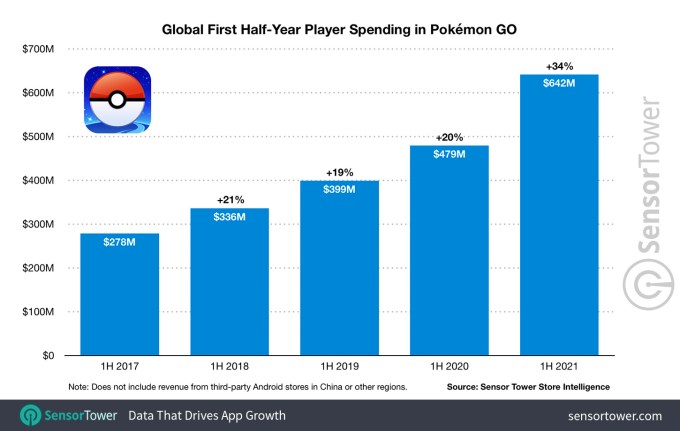
Image Credits: Sensor Tower
Pokémon Go revenue from player spending has topped $5 billion as the game celebrates its five-year anniversary. According to Sensor Tower, the AR game now generates $1 billion on average per year, putting it at the op of the Geolocation AR category globally, ahead of others like Dragon Quest Walk and Square Enix.
The Alto’s Adventure series from Snowman is getting a new installment in the form of an upcoming Apple Arcade release called Alto’s Odyssey: The Lost City. The game is like a special edition of Alto’s Odyssey (the sequel to Alto’s Adventure), as it include extra features and content that’s deeply integrated, not just tacked on, including a new location called the Lost City. The game arrives on Apple Arcade on July 16th.
Health & Fitness
Amazon launched a new, employee-only app called Amazon WorkingWell for its health and wellness program that includes Associate-facing support, education and safety-prevention information across text content, videos, podcasts, and more.
Vaccine passport apps have hit 10 million global downloads, according to data from Apptopia. The firm analyzed the downloads for top apps including NHS, VeriFLY, NYS Excelsior, and CommonPass.
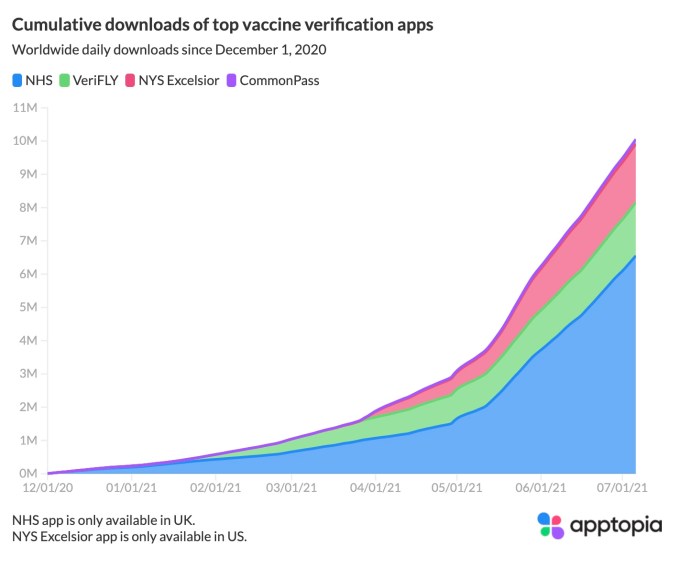
Image Credits: Apptopia
Government & Policy
Chinese ride-hailing giant Didi was pulled from several apps stores in China, including Apple’s App Store. According to Chinese regulators, the app was illegally collecting users’ personal info. Didi said it was making “corrections” and is halting new user sign-ups, but the app for existing users remained operational. China’s cybersecurity watchdog also suggested the company delay its IPO, and the app was removed from China’s WeChat and Alipay apps for new users.
Security & Privacy
9 Android apps with 5.8 million combined downloads were caught stealing users’ Facebook passwords. A security firm found apps offering photo editing, exercise, horoscopes and utilities that were tricking users into entering their Facebook credentials with the promise of removing ads from the app after signing into Facebook. Google has banned all the apps and their developers from the Play Store.
10 opioid addiction treatment apps were found sharing sensitive data with third parties, including a unique identifier on Android, unique device identifiers, phone numbers, and lists of installed apps. The apps have 180K combined downloads.
Google released its July 2021 security update for Pixel which patches a few “high”-priority (but not critical) vulnerabilities. The update is rolling out to a range of Pixel devices.
Funding and M&A (and a SPAC)
 Publishing platform Hiber raised $15 million for its web platform that allows people to create user-generated games, similar to Roblox. The company also offers a creation app for Android devices and allows players to use Safari to create games on iOS.
Publishing platform Hiber raised $15 million for its web platform that allows people to create user-generated games, similar to Roblox. The company also offers a creation app for Android devices and allows players to use Safari to create games on iOS.
 Juni, a neobanking app for e-commerce and online marketing companies, raised $21.5 million in Series A funding. The round was co-led by DST Global and Felix Capital. The banking app has signed up 3,000 businesses on its waitlists, of which 200 have now joined.
Juni, a neobanking app for e-commerce and online marketing companies, raised $21.5 million in Series A funding. The round was co-led by DST Global and Felix Capital. The banking app has signed up 3,000 businesses on its waitlists, of which 200 have now joined.
 Neighborhood social networking app Nextdoor said it’s going public via a SPAC. The company plans to merge with Khosla Ventures Acquisition Co. II, taking itself public at the same time. The transaction will value the business at approximately $4.3 billion, up from its 2019 valuation of $2.17 billion. The app has 27 million weekly active users across the U.S.
Neighborhood social networking app Nextdoor said it’s going public via a SPAC. The company plans to merge with Khosla Ventures Acquisition Co. II, taking itself public at the same time. The transaction will value the business at approximately $4.3 billion, up from its 2019 valuation of $2.17 billion. The app has 27 million weekly active users across the U.S.
 Pleo, a startup offering smart company cards for SMBs that automate expense reports, raised $150 million at a $1.7 billion valuation for its service that works across web and mobile.
Pleo, a startup offering smart company cards for SMBs that automate expense reports, raised $150 million at a $1.7 billion valuation for its service that works across web and mobile.
 Popshop Live raised $20 million in Series A funding at a $100 million valuation for its livestream shopping service, available on web and mobile. The round was led by Benchmark, and comes after 500% growth of the number of sellers on the platform in the last 3 months.
Popshop Live raised $20 million in Series A funding at a $100 million valuation for its livestream shopping service, available on web and mobile. The round was led by Benchmark, and comes after 500% growth of the number of sellers on the platform in the last 3 months.
 Live video shopping startup Talkshoplive raised $6 million in a seed extension round led by Raine Ventures. The company publishes an app that sellers can use with its live stream shopping platform.
Live video shopping startup Talkshoplive raised $6 million in a seed extension round led by Raine Ventures. The company publishes an app that sellers can use with its live stream shopping platform.
 Indian social commerce startup DealShare, which began as an e-commerce platform on WhatsApp, raised $144 million in Series D funding led by Tiger Global. The round values the company at $455 million post-money and will be used to help fund international expansion.
Indian social commerce startup DealShare, which began as an e-commerce platform on WhatsApp, raised $144 million in Series D funding led by Tiger Global. The round values the company at $455 million post-money and will be used to help fund international expansion.
 Indian edtech Teachmint raised $20 million in a “pre-Series B” round led by Learn Capital for its mobile-first, video-first tech platform.
Indian edtech Teachmint raised $20 million in a “pre-Series B” round led by Learn Capital for its mobile-first, video-first tech platform.
 European neobank Bunq, which offers a bank account you control from a mobile app, raised $228 million in Series A funding that values the business at $1.9 billion. The round was led by Pollen Street Capital and is the largest round for a European fintech.
European neobank Bunq, which offers a bank account you control from a mobile app, raised $228 million in Series A funding that values the business at $1.9 billion. The round was led by Pollen Street Capital and is the largest round for a European fintech.
Downloads
Rec Room (Android launch)

Image Credits: Rec Room
Social gaming platform Rec Room, which recently became the first VR unicorn, has launched on the Google Play Store. The platform originally targeted only the VR market but expanded to other platforms as VR headset sales remained slow. Similar to Roblox and others, Rec Room allows players to dress up their avatars and play games built by other creators. To date, the app had been available on iOS, PlayStation 4 and 5; Xbox Series X and Xbox One, PC (via Steam), Oculus Quests and other VR headsets. It’s now live on Android to serve the larger global market.
OnMail (Android launch)
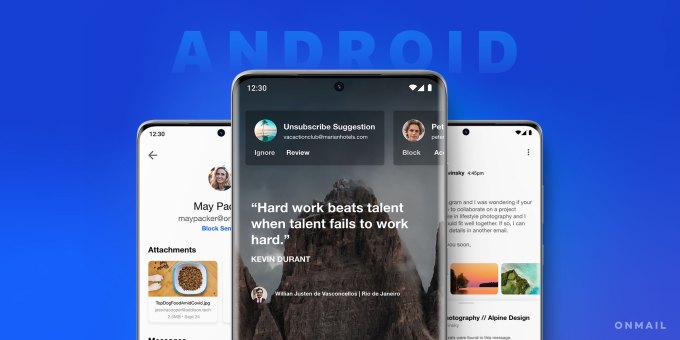
Image Credits: OnMail
Email service OnMail, which has previously been available on iOS, launched its app on the Google Play Store. The app aims to solve users’ biggest problems with email, including those with unwanted mail, email trackers, and more. As on iOS, OnMail lets you accept or reject senders before they hit your mailbox, blocks spy pixels, nudges you to follow up on emails, automatically organizes mail into smart folders (shopping, travel, packages, events), offers easy unsubscribe, monitors for refunds, checks grammar, makes it easier to send large attachments, and a lot more.
SwoonMe

Image Credits: SwoonMe
A new startup called SwoonMe aims to fix the problem with superficial dating apps, where users primarily make decisions based on how someone looks in their photos. Instead, on SwoonMe, you take a selfie which the app converts into an avatar. This is what others will see when they come to your profile. You then record a voice clip to tell others about yourself and what you’re looking for in a partner. The result is that when people scroll through SwoonMe, they’re not making snap decisions based on what they’re seeing, but are rather making more thoughtful decisions based what they hear. When two people match, the app encourages them to continue to get to know each other using voice messages and soon, icebreaker games — not texting and photo-sharing. As they communicate, their avatar will slowly unveil their real photo.
Slide
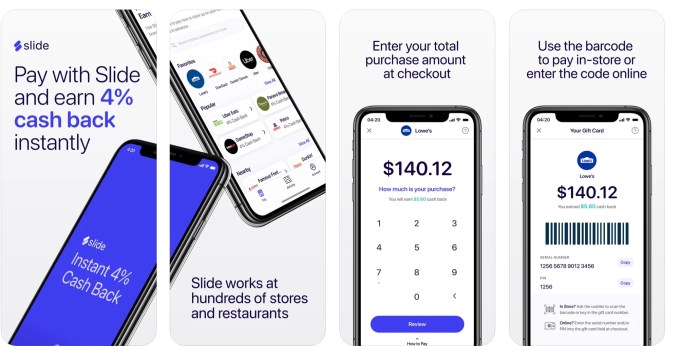
Image Credits: Raise.com
A new app from gift card marketplace Raise.com, Slide, offers users 4% cash back on their purchases online and at over 150 popular stores, including Lowe’s, Petco, ULTA, Office Depot, Bed Bath & Beyond, Chipotle, Panera Bread, Chili’s, DoorDash, Domino’s, Aeropostale, Express, H&M, Foot Locker, Loft, REI, GameStop, AMC, Groupon, Southwest Airlines, Uber, AutoZone, and others. To use Slide and get 4% back, users open the app at checkout, choose their store, and enter their exact purchase amount. They’ll then show the barcode to the cashier, or if paying online, enter the code. The cash back can be transferred to Venmo or PayPal or saved for a future purchase.
Users should be aware the additional cash comes at a price: the data Slide collects from users will allow companies to retarget them with ads and offers across devices, according to the app’s Privacy Policy. The app is free on iOS and Android.











 TikTok is
TikTok is 


 Publishing platform Hiber raised $15 million for its web platform that allows people to create user-generated games, similar to Roblox. The company also offers a creation app for Android devices and allows players to use Safari to create games on iOS.
Publishing platform Hiber raised $15 million for its web platform that allows people to create user-generated games, similar to Roblox. The company also offers a creation app for Android devices and allows players to use Safari to create games on iOS. Neighborhood social networking app Nextdoor
Neighborhood social networking app Nextdoor 




